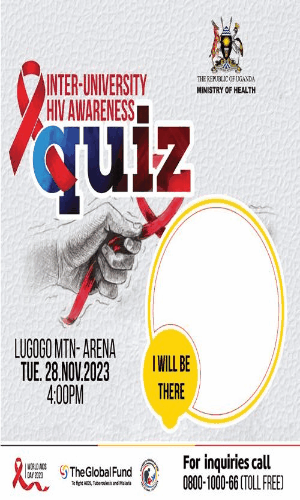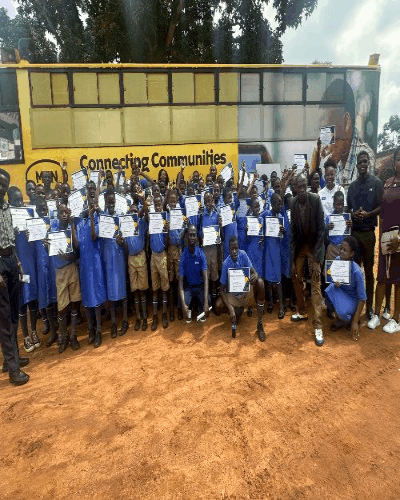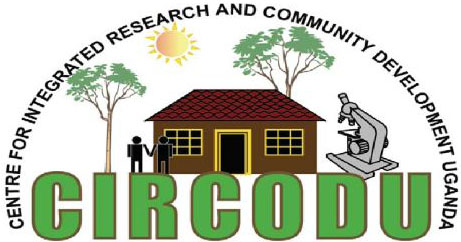MAKERERE UNIVERSITY: A study on domestic water scarcity in Rakai district of Uganda, reveals hundreds of children are at risk of disease and poor education if no intervention is made.
The fresh PhD study which is up for public defence next week at Makerere University, reveals that due to domestic water scarcity in the sub counties of Kagamba and Lwanda, children’s health was affected through diseases, workload, body pains, compromised hygiene and happiness.

“Water scarcity is the biggest threat to well being, including not attending school, diseases and food scarcity,” reveals the study’s abstract by candidate Innocent Kamya.
Mr. Kamya’s study, which is a subject of a PhD Public Defence on Friday September 9, 2022, starting at 9:00 am at the School of Social Sciences Upper Lecture Theater, has attracted our Events Desk as worthy of mention. This is because, it is hoped that his findings can inform public policy for the well- being of vulnerable children in Uganda.

A PhD Public Defence is often viewed solely as an academic event marking and evaluating the end of a research project, leading to recommendation for the award of a Doctor of Philosophy. Typically, discussions on the doctoral defence center on the scholarly dimension. The defence is often viewed solely as an academic event marking and evaluating the end of a research project.
Mr. Kamya’s study is titled: “Domestic Water Scarcity and Children’s Well being in Rural Rakai District, Uganda.” He was supervised by Dr. Waiswa Dauda from the Department of Sociology and Anthropology and Associate Professor Narathius Asingwire from the Department of Social Work and Social Administration from the same school.

“For majority, water was encountered as a problem, and they devised coping strategies, some injurious to well being,” he reveals in his abstract seen by ResearchFinds.
His study, which surveyed 405 school-going children aged 11-17 years, discovered that there was a marked connection between domestic water scarcity and ill-health especially for the girl child.
“The education was impacted through tardiness, reducing private study time, worrying about fetching water and thirst at school. By gender, girl’s educational well being was more affected,” the study further reveals.

His study, which investigated the relationship between domestic water scarcity and children’s well being, used a mixed-methods research design to arrive at the findings.
It conceptualized ‘well-being’ in terms of basic needs; access to education, health, nutrition, shelter, and interpersonal relations. “Well-being meant accessing clean and safe water, being hygienic, happy, and physical appearance, he argued
The Findings:
Findings indicate a statistically strong association between where the child lived and the effect of the scarcity on education.
The water scarcity constrained household relations. The children used agency to adapt to the scarcity: both existential and identity agency in performing their water provisioning role.
“Based on the structural model for child well being, the impact of the scarcity was evident across the frames of well being beginning with children as actors,” the study finds.
Mr. Kamya further reveals that a majority of the children affirmed that water scarcity was the biggest threat to their well being.
“Water scarcity posed both direct and indirect threats; the direct threat resulting from long distances and risks at the water point. Indirectly, the poor quality of water increased susceptibility to water-related illness.”
He adds that a majority of the children experienced a water problem in their home and were unhappy living in such a situation.
“Unhappiness also resulted from reduction of playing time, punishment and body aches. Fetching water made up the bulk of the chores performed by children, making it a drudgery due to using heavy water vessels, long distances covered and the number of trips to the water point per day,” he concludes.
Mr. Kamya recommends prioritization of improved water access as a part of the National Action Plan on Child Well being, will redress scarcity related ill-being.
“It is important to increase safe water sources in the water-scarce rural areas,” he counsels policy makers.
Who is Mr. Innocent Kamya?
Mr. Kamya is a Sociology scholar at Makerere University’s Department of Sociology and Social Anthropology. His recent published paper in ‘The Journal of Water and Gender’ titled: “Children’s Experience with Water Scarcity in Rural Rakai, Uganda,” is available at: https://repository.upenn.edu/wh2ojournal/vol8/iss1/1

The ResearchFinds Team is a reporting channel affiliated with us and operates as a dynamic consortium of seasoned reporters at ResearchFinds News, collectively driven by the mission of transforming intricate research findings into accessible news stories tailored for a wider audience.
This team's diverse expertise spans various disciplines, ensuring that research products from fields like science, technology, health, and social sciences are conveyed in an informative and engaging manner. By bridging the gap between academic research and the general public, the ResearchFinds Team plays a crucial role in making complex research accessible to all.
Each member of the ResearchFinds Team is dedicated to the daily task of not only crafting insightful news stories but also ensuring that these stories are promptly shared on our website. This collaborative approach fosters a commitment to providing well-researched, evidence-based narratives that empower readers with knowledge and stimulate meaningful discussions around important research findings.
The team's collective effort is geared towards breaking down the barriers that often separate the academic world from the broader public, making science and research more comprehensible, engaging, and ultimately contributing to informed decision-making.
Minister of Health, @JaneRuth_Aceng presents #Uganda recommendations at the Climate and Health Ministerial meeting at #COP28 pic.twitter.com/W8Phhq17yH
— Ministry of Health- Uganda (@MinofHealthUG) December 4, 2023



















This Research topic is indeed a good area and helps to expose the various key problems that are brought by the scarcity of water in Rakai. I believe the same is being experienced by some other rural areas in Uganda.
If only would the responsible parties play their part in solving the Water Scarcity issue, alot more issues would be tackled all together.
I wish the area MP gets access to this an they act accordingly.